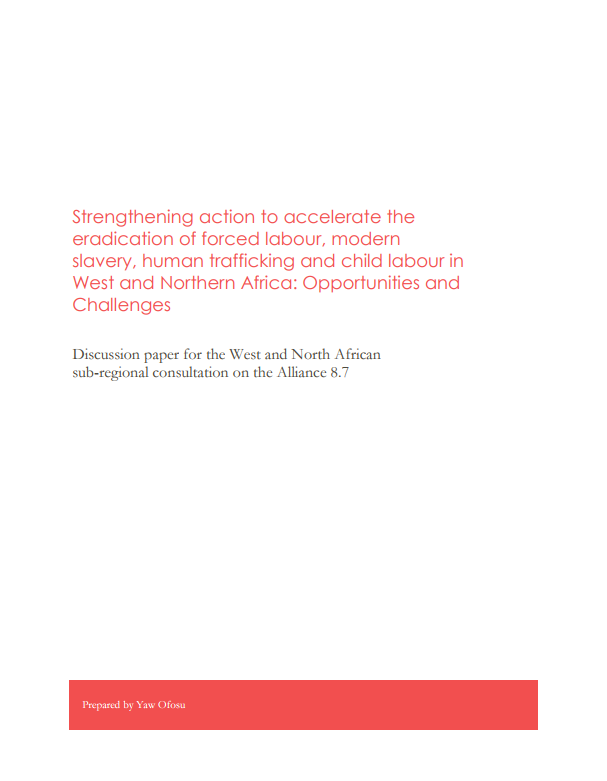The United Nations Sustainable Development Goals (SDGs), officially The 2030 Agenda for Sustainable Development, constitute an ambitious set of international goals aimed at “[ending] all forms of poverty, [fighting] inequalities and [tackling] climate change, while ensuring that no one is left behind.” Child labour, forced labour, human trafficking and contemporary forms of slavery are, undoubtedly, some of the most egregious manifestations of poverty and inequality. As we will see below, despite significant progress in lowering poverty levels in recent decades, notably under the Millennium Development Goals, reducing the number of children in child labour, and promoting laws and policy measures tackling forced labour, modern slavery and human trafficking, large numbers of men, women and children remain trapped in situations of abuse and exploitation. Many more also live in situations that make them vulnerable to such forms of abuse. Effective action to end these practices requires multi-dimensional.
Goal 8 of the SDGs seeks to “promote sustained, inclusive and sustainable economic growth, full and productive employment and decent work for all.” Its 10 substantive targets cover, inter alia: the achievement of rapid per capita economic growth in Least Developed Countries (LDCs); enhanced productivity in labour-intensive sectors; significant reductions in the proportion of youth not in employment, education or training; and protection of labour rights and promotion of safe working environments for all workers. Target 8.7 commits the international community to:
“Take immediate and effective measures to eradicate forced labour, end modern slavery and human trafficking and secure the prohibition and elimination of the worst forms of child labour, including recruitment and use of child soldiers, and by 2025 end child labour in all its forms.”
In addition to Goal 8, several of the other SDGs are relevant to the achievement of decent work for all and the elimination of the exploitative practices and abuses covered by Target 8.7. Examples include targets under poverty (Goal 1), hunger (2), health and well-being (3), education (4), gender equality (5), industry and infrastructure (9), reduced inequalities (10), and peace, justice and strong institutions (16). In view of the interconnected and mutually reinforcing nature of the 17 goals and 169 targets, the SDGs as a whole provide an integrated framework, at both national and international levels, for addressing child labour, forced labour, human trafficking and modern slavery.
The SDGs envisage country-led implementation through the alignment of national policies and programmes with the global goals, using multi-stakeholder partnerships as a key implementation strategy (SDG Target 17.16). This approach fits well with the cross-sectoral nature of the problems underlying Target 8.7. Given their scale and complexity, the attainment of Target 8.7 requires concerted, focused and broad-based action, active participation and close cooperation by many actors: governments, employers’ and workers’ organizations, international organizations, non-governmental organizations, faithbased organizations, the media, and academia. In this regard, the ILO is working with other stakeholders to establish Alliance 8.7, a Global Alliance to eradicate forced labour, modern slavery, human trafficking and child labour. The objective is to bring all concerned parties together to join forces in achieving the target. In the process, the partnership will contribute to the attainment of other SDGs, notably those relating to poverty (Goal 1), education (4), gender equality (5), decent work (8), reduced inequalities (9), and peace and justice (16).
The present paper looks at the considerable opportunities and potential momentum offered by the 2030 Agenda for achieving effective, timely and long-lasting results in the fight against child labour, forced labour, human trafficking and modern slavery in Africa, and the challenges that need to be overcome. The paper aims at informing discussions among ILO constituents and partners in Western and Northern Africa on the establishment, strategy and functioning of Alliance 8.7.

